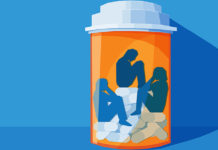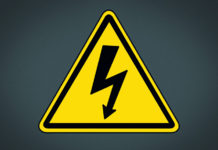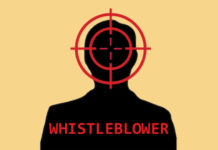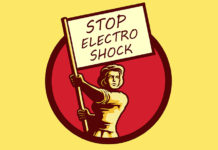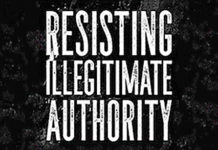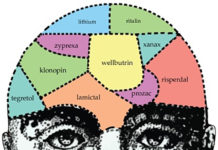Smoke and Flames: Silence In A World On Fire
A corrupt world is built brick by brick by individual acts of shame and silence. Can we break the silence that protects misconduct even while it means being exposed ourselves? Psychiatry and the mental health system are failing, but they are also just sets of human relationships, relationships we are also part of.
Anatomy of an Opioid Epidemic
Long-term opioid prescribing has not only been shown to not be helpful for chronic pain; it in fact worsens pain by repeatedly causing tolerance and withdrawals (the main symptom of which is pain). This is analogous to how psychiatric drug use, though often helpful initially, ultimately can cause people to become chronically “mentally ill.”
Mindfulness and Complex Trauma: The Rewards and the Risks
What media hype and those selling mindfulness don’t tell you is that mindfulness is a process that can radically transform you, and it’s not always safe, nor is it easy or straightforward. We make it safer by being aware of the risks and learning to listen to our own bodies about when it is or isn’t okay for us. No one else actually knows.
Are Emotional Disorders Really Disorders of Love?
Could the whole array of psychiatric diagnostic categories, to the extent that they have any validity at all, be expressions of the failure to love and to accept love? Do successful psychotherapies really work by means of the therapist’s ability to encourage people to experience love through how positively he or she relates to them?
The Real Attention Deficit Disorder
The fact that we shame people for acting like they need attention (and for actually needing attention) is self-defeating and maddening, not to mention absurd. Living in a society that punishes people for having fundamental needs like attention is probably one of the reasons people have developed behaviors “just” to “get attention.”
Filling the Crack in the Liberty Bell
Instead of an echo-chamber conference, in which treatment “experts” present to other treatment providers, and those with lived experience gather in their own rooms, the ISPS-US conference allowed for the clash of diverse opinions, which could sometimes amalgamate into something greater than the sum of its parts.
What Would Real Informed Consent on Psychiatric Drugs Look Like?
Reforming the process of real informed consent can be brought to the horizon sooner rather than later if we have a solid idea of what the provision of truthful, unbiased research-based information about psychiatric medications should look like. Our upcoming series of webinars for 2019 will focus on just that.
Trauma Outside the Box: How the ‘Trauma-Informed’ Trend Falls Short
Becoming "trauma-informed" is often just a way to advance one's career and feel good about oneself while pretty much doing nothing different. Here's a glimpse into the ways in which mainstream services and trauma specialists are perpetuating harm while patting themselves on the back for being progressive and aware.
Litigation Update: ECT Device Manufacturer Issues “Permanent Brain Damage” Warning
After spending the entire litigation vehemently denying that brain injury was even a possible result of ECT, Somatics, LLC has now issued a warning of "permanent brain damage" in its new risk disclosures. We think this makes the case of anyone who underwent ECT within the statute of limitations MUCH stronger.
Heroes of Science: Survival of a Whistleblower
I am just the messenger, the symbol that healthcare is in many ways absurd and harmful because the drug industry is too powerful. The Cochrane Collaboration is in deep crisis because it is too close to industry, practices scientific censorship and has a business model that focuses on “brand” and “our product” rather than getting the science right.
Learning From Each Other As Psychiatric Survivors
I'm drained by talking to people who might be first discovering basic truths about the mental health system that I've been aware of for over 15 years. But my excitement comes alive when I consult with people recently off of psychiatric meds who are interested in doing work similar to me, mentoring others about coming off of psych drugs.
Escaping from AOT: The Importance of the Incident with the Candle
At my AOT hearing, in response to a question about whether I had had any problems with substance use, my counselor said that there had been “an incident with a candle.” There has never been an incident with a candle, but now it is enshrined in my permanent record, so vague and so general that it could mean anything.
Mortification of the Self: The Impact of Stigma on Identity
This is how the vicious cycle continues: the more one internalizes stigma, the more she will distance herself from her social surroundings; the more she distances herself, the more she will experience proliferation of symptoms; and the more symptoms are present, the more others will stigmatize and "force" the person into further isolation.
Hearing Voices: Where We Locate Them Shapes Our Experience
My experience began when I heard two people talking about me when I was home alone. I needed a reasonable explanation, and concluded that it had to be my upstairs neighbors. Then I began to hear the voices outside of my apartment — this new presentation meant that my explanation no longer made sense.
Bad-Science Warning: The “Minnesota Study of Twins Reared Apart” (MISTRA)
The huge impact of the MISTRA, in addition to the harmful and regressive social and political policy implications that flow from it, necessitates a detailed analysis of the “science” behind the study’s major claims and conclusions. Here I offer a new critique of this famous and influential “separated twin study.”
The “Time to Strike” is Now: A Call for Anti-ECT Activism
This is a call for action against the horror euphemistically known as “electroconvulsive therapy.” At a time when society is finally making advances against ECT, a courageous 80-year-old shock survivor, Connie Neil, has decided to go on a hunger strike to try to stop the horror that was visited on her from continuing to be visited on others.
The Language of Internalized Oppression
I realize many folks get irritated by the ‘moving target’ of language, but understand that this is a process of unlearning for us all. It’s not so much that the words randomly keep changing as it is that the oppression embedded in our words and ways of being runs deeper than most of us could have ever imagined. Unraveling it all is a long way off.
Allen Frances and the Increasing Use of Antidepressants
Much of what Allen Frances says is sensible, but it would be more convincing if he would lay the responsibility for the present state of affairs squarely where it belongs: on psychiatry. I suggest, in all sincerity, that Dr. Frances abandon his attempt to absolve psychiatry from blame, and that he join the anti-psychiatry movement.
Psychiatric Marginalization of Anti-Authoritarians – Excerpt from New Book
Anti-authoritarians are a threat to authoritarians because they don’t provide unquestioning obedience, but instead first assess the legitimacy of authorities. Consequently, authoritarians have attempted to shun, punish and psychopathologize anti-authoritarians throughout history.
MIA Update: Our Parent Resources Initiative and More
Regular MIA readers may have noticed that we recently added a content box on the front page titled “Parent Resources.” This initiative has been a long time coming, and it is one that we hope will help us reach—and serve—a new group of readers. Many parents writing to us are desperately looking for a way out of the conventional system.
Suicide Hotlines, Risk Assessment and Rights: Whose Safety Matters?
The hotline “counselor” will tell you that, if you’re unable to keep yourself safe, they will have to send you some “help.” We all know that what they mean is not a friend or a therapist but the police. Because strangers, usually big white men with guns, keep everyone safe and are not triggering, traumatizing or on power trips at all.
Huge Breakthrough in Lawsuits Against ECT Shock Device Manufacturers
A major electroconvulsive therapy case that was on the eve of trial just settled to the satisfaction of the injured ECT patients and the DK Law Group, LLP. As an expert in the case I am pleased to report that this is a significant victory. The evidence secured has paved the way for more suits against ECT manufacturers that are on the way.
How Our Government Helps Drug-Dealing Doctors Kill Us
In the 1800s, the British East India Company, aided by England’s parliament which invested in it, profited greatly by selling opium in China. This began what China calls its “century of humiliation” in which a great empire was brought to its knees. Are we at the start of our own lost century, with psych pill and opioid dispensers taking on the BEIC’s role?
Peruvian Legal Capacity Reform – Celebration and Analysis
Peru has moved closer to full compliance with the UN Convention on the Rights of Persons with Disabilities than any other country in the world. Here I analyze the Peruvian reform as it pertains to legal capacity and the right to be free from disability-based detention and forced medical interventions.
55 Steps to Informed Consent
55 Steps is a new film based on a true story that centers around two women: Collette, a lawyer with a tendency to work long hours, and Eleanor, who has spent far too much time incarcerated in hospitals. Over the course of five years, Collette fights for Eleanor’s right to choose whether or not she takes psychiatric drugs. This film is imperfect, but its importance can’t be ignored.


